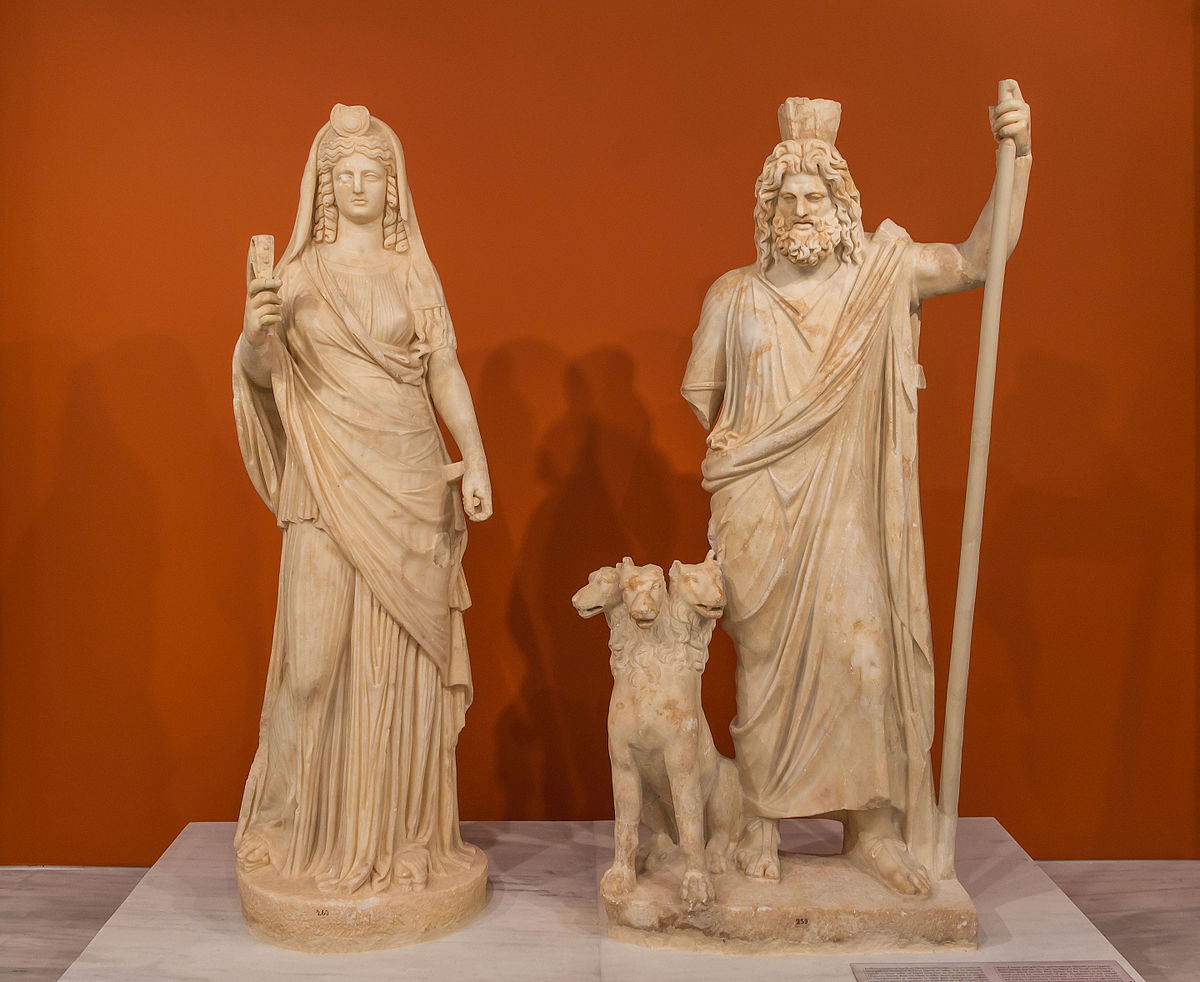Greek philosophy is not claimed to be divinely inspirated by the God of the bible.
The "Greek influence" dilemma solved. Nice one DBT

Divine inspiration? It's certainly not Greek philosophy as you state above.. ..Paul didn't get it from there. (Pass that on to steve-b)
It was more than just influence. Some of it copied practically ad verbatim.
I'd like to see the comparison you speak of....Verbatim. Oddly enough - there are similar notions regarding Nordic god's Hindu gods etc.
Quote:
''One thing that many people do not know about the New Testament is that it actually contains several direct quotes from certain ancient Greek writers. In fact, there are a total of at least five quotes from four different Greek writers found throughout the pages of the New Testament. The following is a list of all of all the known quotations.''
The verses are given in full with the quotations written in bold:
#1 and #2. Acts 17:27-28: “That they should seek the Lord, if haply they might feel after him, and find him, though he be not far from every one of us: For in him we live, and move, and have our being; as certain also of your own poets have said, For we are also his offspring.“
This verse actually contains two quotations. The first quotation comes from The Kretika by the Greek poet and mystic Epimenides of Knossos. The second quotation comes from line five of the didactic poem Phainomena by the Stoic philosopher Aratos of Soloi.
#3. Acts 26:14: “And when we were all fallen to the earth, I heard a voice speaking unto me, and saying in the Hebrew tongue, Saul, Saul, why persecutest thou me? it is hard for thee to kick against the pricks.”
This unusual phrase is a direct quote from line 1624 of the Greek tragedy Agamemnon by Aischylos.
#4. 1 Corinthians 15:33: “Be not deceived: evil communications corrupt good manners.”
This saying is directly quoted from the comedy Thais by the Athenian comic playwright Menandros. Menandros, however, seems to have actually gotten the quote from the tragedy Aiolos by Euripides.
The apostle Paul seems to have enjoyed, or at least had extensive knowledge of, classical drama, judging by the fact that he quotes from at least two different classical playwrights.
#5. Titus 1:12: “One of themselves, even a prophet of their own, said, The Cretians are alway liars, evil beasts, slow bellies.”
This quote comes from the Kretan poet Epimenides of Knossos. This quote, like the one found in Acts 17:28, comes from The Kretika. In fact, it seems to come from the exact same passage. Epimenides is not mentioned by name in either of the places where he is quoted and The Kretika has, sadly, not survived. The only reason we know that these passages are quoted from him is because ancient commentators who had access to Epimenides’s writings made note of this fact.
Based on these two quotations, we can reconstruct the passage as a refutation of the widely held Kretan belief that Zeus was a mortal king of Krete and that he died there and was buried. This belief is also referenced by the early mythographer Euhemeros (whom you may remember from my previous article “The Original Myth-Busters”).
The authors of the New Testament must have either really admired Epimenides or at least seen him as a useful figure to establish good relations with the pagans because he is quoted, not once, but twice in the New Testament, and in different books no less, making him the most quoted non-Jewish writer in the entire Bible. It is also interesting that this passage directly refers to Epimenides as a “prophet,” which makes him one of a small handful of non-Jewish persons to be explicitly referred to as a prophet.
In addition to these five direct quotes, there are also passages, particularly in Paul’s letters, where Christian teachings are explained using concepts from Greek philosophy. For instance, Paul’s famous description of the body having many parts with different functions in 1 Corinthians 12 may have been partly inspired by a similar image conjured up in Platon’s Protagoras 349c, in which Sokrates uses the example of how the different parts of the face all perform very different functions from each other and from the function of the whole and yet, through the combination of all the different parts working together in harmony, they each contribute to the function of the whole.''
So again, If St Paul copied from Greek philosophy, he was not using his own thoughts or reasoning, or being inspired by God, he was copying other people's work, the work of Greek Philosophers.
The bible mentions at least 30 + pagan God's IIRC .. Some gods are the same gods having different names,depending on the locations and nation. All quite similar.
Jesus is apparently Horus, Attis, Mithra..and um ...you get the score. According to some claims.
If the bible is supposed to be divinely inspired, why would this be the case?
Because it's profound in many ways (to mention). Jesus of course is key.
That doesn't address the issue of why Paul used Greek philosophy even while claiming divine inspiration.
Why would Paul need the help of Greek philosophers?
Paul was an educated man. It would be quite natural for him to have dialogue from a philosophy base to the educated , or even just speaking to the
Greek influenced gentiles
...for example:
Wouldn't that be logically fitting for the
educated readers of philosophy of his day, who knows nothing of Christ, would need Paul to be speaking to them on their platform in their language? We have here in the Gospels, a writer for every "class" and 'level' of understanding perspectives for all types of people.
(Although...corruption confuses it of course)
Sorry I was posting in haste. ok I'm off
Paul said that his teachings were not derived from human sources. In
Galatians 1:11-12 he says; "For I certify to you, brothers, that the gospel I preached is not devised by man.''
Yet he in fact copied from Greek philosophy to flesh out his teachings.


